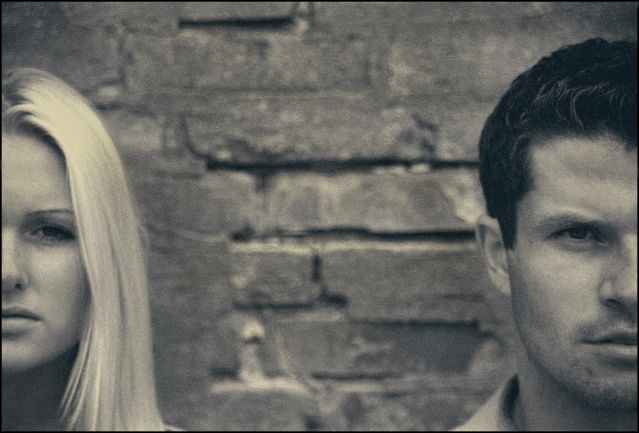Relationships
Perfectly Imperfect: Why Can't You Be Who I Want You to Be?
The perfect romantic partner isn't so perfect, after all. Now what?
Updated June 24, 2024 Reviewed by Michelle Quirk
Key points
- A discrepancy exists between who someone is and who we want them to be.
- We can hold the ambiguity that two opposite, contradictory circumstances or feelings can both be true.
- The assets and liabilities of a person must co-exist.

So, you met someone. Not just anyone, but the person you’ve been longing for. The connection between the two of you is pure magic. Deep connection, uncanny chemistry, organic intimacy. Fireworks, exploding to the 1812 Overture. They are exactly your type and you, theirs. They are sweet, thoughtful, sensitive, smart, and sexy as all get out. The neurotransmitters in your brain are bursting, flooded with oxytocin, dopamine, and serotonin. You’re on “cloud 9.”
It’s almost too good to be true.
Yes, exactly. Too good to be true.
While the person of your dreams indeed has all the endearing attributes you’ve romanticized in your heart and head, there’s also an unseemly side of this ideal mate. Drug addiction. They were sober for two years but experienced a series of recent relapses. Oh, and they’re in a promiscuous one-sided open relationship with a live-in partner.
Too good to be true? Yes, exactly.
If only there weren’t the addiction to drugs and the sex…
If only.
But those two caveats exist and co-exist with the euphoria. You can’t ignore the hard-to-swallow truth or wish it away. And so, there’s a discrepancy between who your new love is and who you want them to be. If only they didn’t have these two major league liabilities, they would be exactly the partner you want. But because of these frantically waving red flags, your idyllic new love is not who you want them to be. The joy you have longed for was finally within grasp—only to slip away into the abyss. And you can’t do a damn thing about it—but cry.
Sh*t!
And so, you have a gut-wrenching conundrum on your hands and an excruciating decision to make. What are you willing to give up? Does the upside trump the downside? Can you even be in a polyamorous relationship – especially one in which you are the secondary partner, without your nervous system exploding? An overly dramatic analogy might be presented as such: Do you want to die from cancer or in a car crash? Either way you lose. The only choice is methodology. Slow and painful or quick and violent. Pick your poison.
Your story of unfulfilled love isn’t unique. Isn’t there always a discrepancy between who someone is and who we want them to be? Lovers. Parents. Children. Siblings. Friends. Bosses. Colleagues. Neighbors.
If only they would be more like this, or didn’t do that, or were more thoughtful, or less cocky. As someone once said, “If ifs and buts were candy and nuts, every day would be Christmas.” Sadly, every day is not Christmas. And sometimes, upon closer review, things aren’t quite what they seem. There are obstacles, challenges, inconveniences, frustrations, disappointments, deal breakers. We fantasize about what could have been, if only…

So, what do we do with our shattered dreams? How can we take off our rose-colored glasses to see more clearly in the light of day? How do we respond to our compromised reality? How do we come to accept the unacceptable? How do we mourn the loss of what could have been? If only...
Well, it’s complex, and the thing about complex problems is that sometimes there are no solutions. At least, no satisfying solutions. Only lose-lose. So, do we surrender and acquiesce to the truth of what is, or do we walk away? Is the barrier too much to overcome? Is there a workable solution? Can we learn to live with the festering angst of uncertainty? Can we hold the ambiguity that two opposite, contradictory circumstances or feelings can both be true?
The person of your dreams is kind, smart, sweet, sexy, handsome, and addicted to a drug that can make them irrational, impulsive, reckless, and dangerous. Both extremes are true. Your newfound crush is not simply one thing. Nobody is. We are a perplexing and complex synthesis of the yin and yang that exists in all of us. The truth is, paradox is uncomfortable, confusing, maddening, unseemly, and heartbreaking.
We all possess a veritable constellation of parts and their corresponding voices within us: a wounded child; insecure victim; inadequate human; competent professional; resilient underdog; loving, avoidant, or anxious partner; judgmental friend; irrational contrarian; rational oracle; insensitive brute; loving companion; grateful champion. Yes, we can be all of these at the same time.
So, how do we define the person who doesn’t meet our expectations, the person who is an imperfect 70- or 80-percenter? Do we evaluate them by their liabilities or their assets? That overly simple binary doesn’t quite seem fair, does it?
I wince at labels. They are inherently biased and prejudicial. How many people are often defined by a psychological diagnosis? Joe is an addict. Beth is a schizophrenic. No! Joe and Beth are people who suffer with addiction and schizophrenia. They are not their disease. But I digress. To define the person of our dreams as either good or bad would be myopic and unjust.
How about our parents? Maybe your dad has been a good provider, has a good sense of humor, loves you unconditionally, and is emotionally unavailable and drinks too much. Maybe your daughter is thoughtful, warm, caring, and judgmental and stubborn. So, do you stop loving or engaging with them because there are things about them you don’t like or understand? Or maybe you do understand and still reject them. How do we let go of our longing for perfection and embrace the truth of imperfection?
And, lest we get too smug, it’s important to note that none of us is immune from this phenomenon. There’s also a discrepancy between who we are and who we want to be. There are unflattering characteristics we wish to overcome, hard truths we must face, self-reflection and changes that need to be made, greater ambitions to attain.
Acknowledging and accepting the truth of both/and is often sad, unacceptable, deflating, infuriating, and tragic. It is admitting defeat. It’s not getting the one gift you want at Christmas. It’s a silver medal at the Olympics. It’s discovering the promising new restaurant in your neighborhood sucks.
The question becomes, how do we surrender to the truth? How do we mourn our loss and heal just to have the same scenario—the same hurt, sadness, and emptiness, play out again and again and again? It’s a question only we can answer for ourselves. Or maybe we just have to accept that there is no answer and allow the pain to linger until we are ready to let it go.
Not all mysteries are solved. Not all stories have happy endings. Maybe it’s just the rhythm of life. And, yeah, that cold, stark reality that human beings are perfectly imperfect really sucks.
If only…




